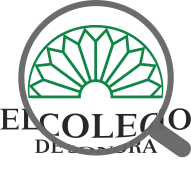Nuts Cluster Impact on Argentine North Patagonia Actors and Territory. First Approach
| dc.audience | generalPublic | |
| dc.contributor.author | Hadad, Maximiliano | |
| dc.contributor.author | González, Germán | |
| dc.contributor.author | Ferro Moreno, Santiago | |
| dc.coverage.spatial | MX-SON | en-US |
| dc.creator | Hadad, Maximiliano | |
| dc.creator | González, Germán | |
| dc.creator | Ferro Moreno, Santiago | |
| dc.date | 2020-08-21 | |
| dc.date.accessioned | 2022-06-28T19:43:08Z | |
| dc.date.available | 2022-06-28T19:43:08Z | |
| dc.date.issued | 2020-08-21 | |
| dc.description | Initiatives to improve sectoral competitiveness are recurrent in Latin America, mainly channeled into formal and informal strategies classified as clusters, in their different meanings. In this context, the evaluation of the impact on the competitiveness of enterprises and territorial development becomes necessary. In Argentina, there are varied experiences, in general with little information on the real impact. The objective of the work has been to offer an exploratory evaluation of the impact of the incipient nut cluster in a region whose traditional activity is in crisis. The methodology was retrospective following the guidelines proposed in 2011 by Gertler, Martínez, Premand, Rawlings y Vermeersch. After the discussion of the counterfactual scenario, the paper describes the historical evolution of the cluster, the cluster’s objectives and projects, the sector's value chain and the impacts. The main conclusions reached are that access, flow and quality of information that has been circulating within the cluster has had significant and positive effects on performance. The impacts on the territory are positive, although the time for evaluation is still short. The main difficulty of the cluster is the scarcity of funding which limits its growth possibilities. | en-US |
| dc.description | Las iniciativas para mejorar la competitividad sectorial son recurrentes en América Latina, canalizadas a menudo en estrategias formales e informales tipificadas como clústeres en sus distintas acepciones. En este contexto, la evaluación del impacto sobre la competitividad de las empresas y el desarrollo territorial se torna necesaria. En Argentina, las experiencias son variadas, en general con poca información sobre el impacto real. El objetivo del artículo es ofrecer una evaluación exploratoria del impacto de un incipiente clúster de frutos secos en una región cuya actividad tradicional se encuentra en crisis. La metodología es de carácter retrospectivo siguiendo los lineamientos que propusieron Gertler, Martínez, Premand, Rawlings y Vermeersch en 2011. Tras la discusión sobre el escenario contrafactual, se detallan la evolución histórica del clúster, sus objetivos, los proyectos, la cadena de valor del sector y se evalúan sus impactos. Las principales conclusiones son que el acceso, el caudal y la calidad de la información que ha circulado dentro del clúster han tenido efectos significativos y positivos en el desempeño. Los impactos en el territorio resultan positivos, aunque el tiempo trascurrido para la evaluación es aún breve. La principal dificultad del clúster se encuentra en la escasez de financiamiento, lo cual limita sus posibilidades de crecimiento. | es-ES |
| dc.description.abstract | Initiatives to improve sectoral competitiveness are recurrent in Latin America, mainly channeled into formal and informal strategies classified as clusters, in their different meanings. In this context, the evaluation of the impact on the competitiveness of enterprises and territorial development becomes necessary. In Argentina, there are varied experiences, in general with little information on the real impact. The objective of the work has been to offer an exploratory evaluation of the impact of the incipient nut cluster in a region whose traditional activity is in crisis. The methodology was retrospective following the guidelines proposed in 2011 by Gertler, Martínez, Premand, Rawlings y Vermeersch. After the discussion of the counterfactual scenario, the paper describes the historical evolution of the cluster, the cluster’s objectives and projects, the sector's value chain and the impacts. The main conclusions reached are that access, flow and quality of information that has been circulating within the cluster has had significant and positive effects on performance. The impacts on the territory are positive, although the time for evaluation is still short. The main difficulty of the cluster is the scarcity of funding which limits its growth possibilities. | en-US |
| dc.description.abstract | Las iniciativas para mejorar la competitividad sectorial son recurrentes en América Latina, canalizadas a menudo en estrategias formales e informales tipificadas como clústeres en sus distintas acepciones. En este contexto, la evaluación del impacto sobre la competitividad de las empresas y el desarrollo territorial se torna necesaria. En Argentina, las experiencias son variadas, en general con poca información sobre el impacto real. El objetivo del artículo es ofrecer una evaluación exploratoria del impacto de un incipiente clúster de frutos secos en una región cuya actividad tradicional se encuentra en crisis. La metodología es de carácter retrospectivo siguiendo los lineamientos que propusieron Gertler, Martínez, Premand, Rawlings y Vermeersch en 2011. Tras la discusión sobre el escenario contrafactual, se detallan la evolución histórica del clúster, sus objetivos, los proyectos, la cadena de valor del sector y se evalúan sus impactos. Las principales conclusiones son que el acceso, el caudal y la calidad de la información que ha circulado dentro del clúster han tenido efectos significativos y positivos en el desempeño. Los impactos en el territorio resultan positivos, aunque el tiempo trascurrido para la evaluación es aún breve. La principal dificultad del clúster se encuentra en la escasez de financiamiento, lo cual limita sus posibilidades de crecimiento. | es-ES |
| dc.identificator | 5 | |
| dc.identifier | https://regionysociedad.colson.edu.mx:8086/index.php/rys/article/view/1273 | |
| dc.identifier | https://doi.org/10.22198/rys2020/32/1273 | |
| dc.identifier.uri | https://repositorio.colson.edu.mx/handle/2012/46010 | |
| dc.language.iso | spa | |
| dc.publisher | El Colegio de Sonora | es-ES |
| dc.rights | Derechos de autor 2020 Maximiliano Hadad, Germán González, Santiago Ferro Moreno | es-ES |
| dc.rights | https://creativecommons.org/licenses/by-nc/4.0/ | es-ES |
| dc.rights | info:eu-repo/semantics/openAccess | es-ES |
| dc.source | 2448-4849 | |
| dc.source | 1870-3925 | |
| dc.source | región y sociedad; Vol. 32 (2020): Rolling Pass; e1273 | en-US |
| dc.source | región y sociedad; Vol. 32 (2020): Publicación continua; e1273 | es-ES |
| dc.subject | Ciencias Sociales | |
| dc.subject | Cluster | en-US |
| dc.subject | Performance | en-US |
| dc.subject | Impact | en-US |
| dc.subject | Agriculture | en-US |
| dc.subject | Patagonia | en-US |
| dc.subject | Clúster | es-ES |
| dc.subject | Desempeño | es-ES |
| dc.subject | Impacto | es-ES |
| dc.subject | Agricultura | es-ES |
| dc.subject | Patagonia | es-ES |
| dc.subject.lcsh | Cluster | en-US |
| dc.subject.lcsh | Performance | en-US |
| dc.subject.lcsh | Impact | en-US |
| dc.subject.lcsh | Agriculture | en-US |
| dc.subject.lcsh | Patagonia | en-US |
| dc.subject.lcsh | Clúster | es-ES |
| dc.subject.lcsh | Desempeño | es-ES |
| dc.subject.lcsh | Impacto | es-ES |
| dc.subject.lcsh | Agricultura | es-ES |
| dc.subject.lcsh | Patagonia | es-ES |
| dc.title | Nuts Cluster Impact on Argentine North Patagonia Actors and Territory. First Approach | en-US |
| dc.title | El impacto de un clúster de frutos secos en los actores y en el territorio de la Norpatagonia argentina. Primera aproximación | es-ES |
| dc.type | info:eu-repo/semantics/article | |
| dc.type | info:eu-repo/semantics/publishedVersion |




